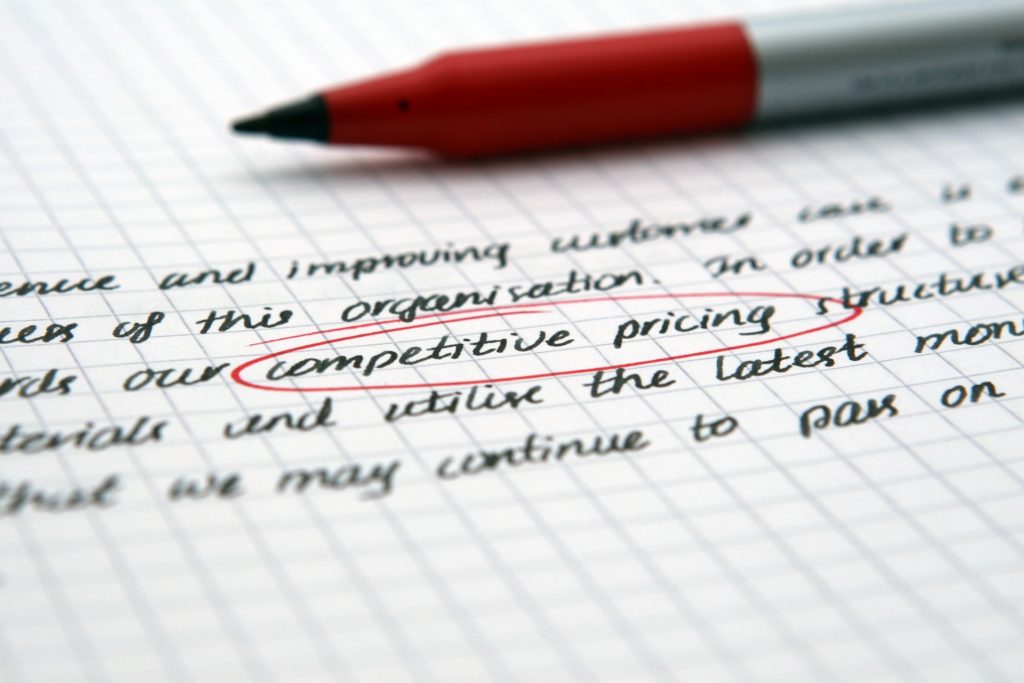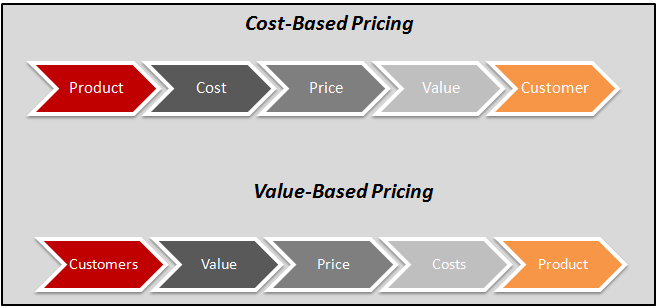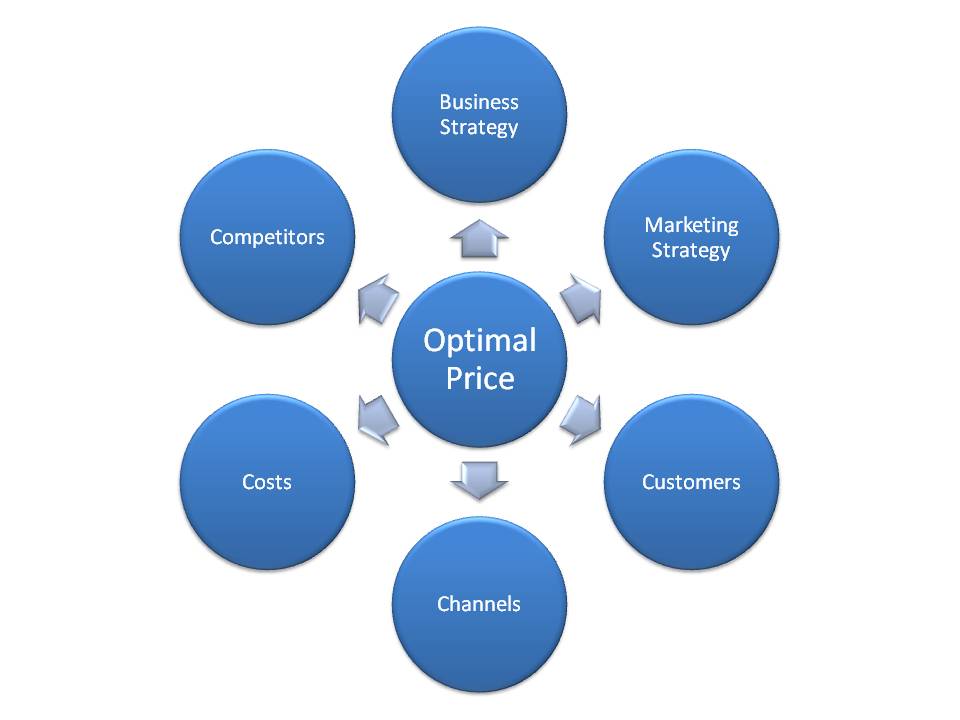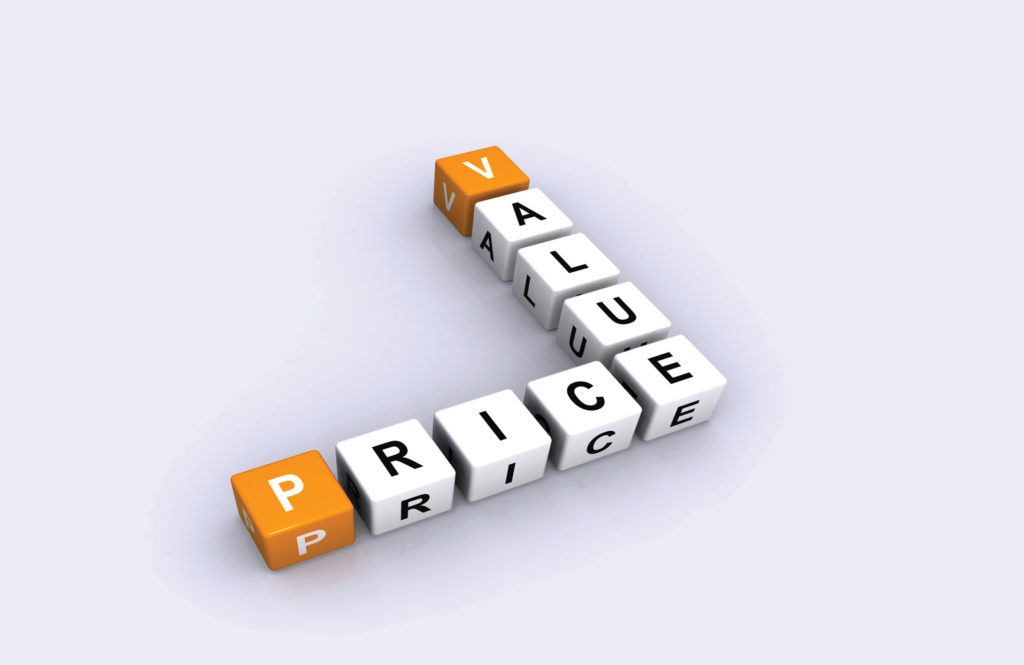Revenue Management for independent hotels & boutique resorts
Selling out and filling up your hotel is your ultimate goal, right?
Once every room is filled, you may think you’ve done your job and are making money.
But think again… are your leaving money on the table?
Are you making as much revenue as you could be? Or should be? Probably not if your hotel is sold out months, weeks or even just days ahead. Though it may seem counter-intuitive, but it’s reality. It is human nature and the easy choice to take the money and sell out early, but you are leaving money on the table.
Consider these scenarios:
- If a 50-room hotel sells out with every room sold for Rs. 5000 on average per room, it has generated Rs. 2,50,000 in revenue per day. If instead you increased rates Rs. 100 for every 10 rooms you sold, and you still sell out, you’d generate an additional Rs. 10000 with an average daily rate of Rs. 5200 (instead of Rs. 5000). If you increased rates by Rs.50 instead of Rs.100, you’d generate an extra Rs. 5500 with an average daily rate of Rs. 5100. In both circumstances, even if you didn’t sell those last 10 rooms, you’d come out with more revenue than if you sold all 50 rooms at Rs. 5000.
- Here’s another consideration: If total rooms revenue is the exact same for a hotel at 80% occupancy with a higher Average Daily Rate than being completely full with a lower rate, the less-occupied hotel is potentially more profitable because of reduced operational expenses (that would be 10 less rooms to clean in a 50-room property).
- Similar to the above example, another revenue-losing mistake many hotels make, is by not changing the rates for the rooms at your hotel. You will not reach your true profit potential and miss out on additional revenue opportunities, if your room rates are static —they never change throughout the year no matter the day, time of year or amount of bookings you’ve already got on the books.
- Let’s say there’s a big convention event in your city and every hotel is sold out or soon to be— and you’ve only got 10 rooms left a month before the convention, your rates should have been much higher up to that point, meaning you have underpriced your hotel and lost potential revenue.
- The opposite is true, too. If your rates are Rs.5000 on a day when you’ve only got 20 rooms booked out of your 50-room hotel for date a month later, you will miss out on bookings and revenue you could have generated by adjusting the price and increasing occupancy.
- It can even happen with room types: If you sell a higher category room to a customer who doesn’t really care and isn’t paying a premium for it, and then the next day, another customer comes and really wants to book that premium room and is also willing to pay a higher price for it. But since you don’t have room available, you have either lost that additional revenue or even a potential booking if the customer then goes elsewhere for a similar type of room.
- Not all customers and bookings are created equal. A guest calling your hotel directly is probably more profitable for you than someone booking a night on a travel portal. A customer may be paying the same exact rate for a night as the guest next room, but if that guest is staying two additional nights, which one is more valuable?
- What can happen when a your hotel accepts a large group for a reduced rate during a high demand period? If you accept a group block of 20 rooms, by offering 30% reduced rates during a weekend that would otherwise be very busy, you have lost an opportunity to sell those 20 rooms at higher prices.
It’s time to re look at your hotel’s revenue management strategy
Are you making as much revenue as you could be? Or should be? Probably not if your hotel is sold out months, weeks or even just days ahead. Though it may seem counter-intuitive, but it’s reality. It is human nature and the easy choice to take the money and sell out early, but you are leaving money on the table.
Consider these scenarios:
- If a 50-room hotel sells out with every room sold for Rs. 5000 on average per room, it has generated Rs. 2,50,000 in revenue per day. If instead you increased rates Rs. 100 for every 10 rooms you sold, and you still sell out, you’d generate an additional Rs. 10000 with an average daily rate of Rs. 5200 (instead of Rs. 5000). If you increased rates by Rs.50 instead of Rs.100, you’d generate an extra Rs. 5500 with an average daily rate of Rs. 5100. In both circumstances, even if you didn’t sell those last 10 rooms, you’d come out with more revenue than if you sold all 50 rooms at Rs. 5000.
- Here’s another consideration: If total rooms revenue is the exact same for a hotel at 80% occupancy with a higher Average Daily Rate than being completely full with a lower rate, the less-occupied hotel is potentially more profitable because of reduced operational expenses (that would be 10 less rooms to clean in a 50-room property).
- Similar to the above example, another revenue-losing mistake many hotels make, is by not changing the rates for the rooms at your hotel. You will not reach your true profit potential and miss out on additional revenue opportunities, if your room rates are static —they never change throughout the year no matter the day, time of year or amount of bookings you’ve already got on the books.
- Let’s say there’s a big convention event in your city and every hotel is sold out or soon to be— and you’ve only got 10 rooms left a month before the convention, your rates should have been much higher up to that point, meaning you have underpriced your hotel and lost potential revenue.
- The opposite is true, too. If your rates are Rs.5000 on a day when you’ve only got 20 rooms booked out of your 50-room hotel for date a month later, you will miss out on bookings and revenue you could have generated by adjusting the price and increasing occupancy.
- It can even happen with room types: If you sell a higher category room to a customer who doesn’t really care and isn’t paying a premium for it, and then the next day, another customer comes and really wants to book that premium room and is also willing to pay a higher price for it. But since you don’t have room available, you have either lost that additional revenue or even a potential booking if the customer then goes elsewhere for a similar type of room.
- Not all customers and bookings are created equal. A guest calling your hotel directly is probably more profitable for you than someone booking a night on a travel portal. A customer may be paying the same exact rate for a night as the guest next room, but if that guest is staying two additional nights, which one is more valuable?
- What can happen when a your hotel accepts a large group for a reduced rate during a high demand period? If you accept a group block of 20 rooms, by offering 30% reduced rates during a weekend that would otherwise be very busy, you have lost an opportunity to sell those 20 rooms at higher prices.
It’s time to re look at your hotel’s revenue management strategy

As outlined in all the illustrations above, your hotel room rates should proportionately change each and every day, ideally with a change in supply and demand to maintain a steady pace of bookings.
Think about the last time you booked a flight. How many days prior did you book? If you wanted to get the best possible price for a flight, You would have booked as far in advance as you can.
If you had to book the day before leaving, wouldn’t you expect to pay a premium price? The same should be true in the hotel industry, and customers should understand the further out they book the better deal they’ll get. The airlines have been doing this for years and many hotels are following suit. Hotel Costumers too have already begun to understand and appreciate this concept.
If you’re wondering where your profits have gone, it might be time to explore how you’re pricing your hotel.
A key part of your hotel pricing and revenue management strategy comes down to having a clear idea of how much demand you have for each day. The more accurate you can be with your forecast, the more successful you can be with your pricing.
Hotels especially with smaller room inventory should have different pricing for different days and seasons based on their location and demand patterns. Rates should be adjusted based on the pace of bookings and projected demand as much as possible from low to high leading up to each and every day.
You’re bound to make huge revenue losses and are risking an empty hotel ,If you’re relying solely on “gut feel” with no analytics behind the thought. If you are thinking that you are going to set the rates really high this year because this weekend last year and it was very busy, you are missing revenue opportunities. Perhaps there was a big event or a convention that filled rooms the year before and created the surge in demand that isn’t on the calendar this year.

Your hotel’s revenue and distribution strategy should be much more than simply opening and closing rates and restricting availability according to occupancy forecasts; It’s rather about taking a more holistic and strategic view of pricing and demand management and understanding the market forces that impact the firm’s competitive price position.

As outlined in all the illustrations above, your hotel room rates should proportionately change each and every day, ideally with a change in supply and demand to maintain a steady pace of bookings.
Think about the last time you booked a flight. How many days prior did you book? If you wanted to get the best possible price for a flight, You would have booked as far in advance as you can.
If you had to book the day before leaving, wouldn’t you expect to pay a premium price? The same should be true in the hotel industry, and customers should understand the further out they book the better deal they’ll get. The airlines have been doing this for years and many hotels are following suit. Hotel Costumers too have already begun to understand and appreciate this concept.
If you’re wondering where your profits have gone, it might be time to explore how you’re pricing your hotel.
A key part of your hotel pricing and revenue management strategy comes down to having a clear idea of how much demand you have for each day. The more accurate you can be with your forecast, the more successful you can be with your pricing.
Hotels especially with smaller room inventory should have different pricing for different days and seasons based on their location and demand patterns. Rates should be adjusted based on the pace of bookings and projected demand as much as possible from low to high leading up to each and every day.
You’re bound to make huge revenue losses and are risking an empty hotel ,If you’re relying solely on “gut feel” with no analytics behind the thought. If you are thinking that you are going to set the rates really high this year because this weekend last year and it was very busy, you are missing revenue opportunities. Perhaps there was a big event or a convention that filled rooms the year before and created the surge in demand that isn’t on the calendar this year.

Your hotel’s revenue and distribution strategy should be much more than simply opening and closing rates and restricting availability according to occupancy forecasts; It’s rather about taking a more holistic and strategic view of pricing and demand management and understanding the market forces that impact the firm’s competitive price position.
Revenue Management Services for Independent Hotels & Boutique Resorts

The cost of customer acquisition through intermediaries and now metamediaries and other portals is increasing exponentially, sometimes as high as 40% commissions being paid to portals. With the changing landscape, revenue management becomes even more crucial for independent hotels.
A strategic revenue management plan should include knowing when and how to apply various strategies to maximize revenues over high and low demand periods and managing revenue from other revenue generating centres of the hotel.
A lot, really a lot has changed in hotel revenue management over the last decade. The market has changed: The growth of internet distribution, price transparency, emergence of social media, mobile technologies has had the deepest impact on our rate strategies.
With rates being distributed widely on such a large scale has altered the purchase behaviour. Even corporate and consortia contracts are being pushed to become more dynamic and competitive.
At the same time, unstable economies and disruptive events like the pandemic, have fundamentally changed the demand patterns.
Revenue Management Services for Independent Hotels & Boutique Resorts

The cost of customer acquisition through intermediaries and now metamediaries and other portals is increasing exponentially, sometimes as high as 40% commissions being paid to portals. With the changing landscape, revenue management becomes even more crucial for independent hotels.
A strategic revenue management plan should include knowing when and how to apply various strategies to maximize revenues over high and low demand periods and managing revenue from other revenue generating centres of the hotel.
A lot, really a lot has changed in hotel revenue management over the last decade. The market has changed: The growth of internet distribution, price transparency, emergence of social media, mobile technologies has had the deepest impact on our rate strategies.
With rates being distributed widely on such a large scale has altered the purchase behaviour. Even corporate and consortia contracts are being pushed to become more dynamic and competitive.
At the same time, unstable economies and disruptive events like the pandemic, have fundamentally changed the demand patterns.
Here's how we can help you optimize your hotel's revenues
Divine Hotel Consultants’ Hotel Revenue Management and Enhancement solutions focus on the hotel’s Direct Distribution Channel and the Total Guest value of every guest segment, not just guest room revenues.
Our Hotel Revenue Management and Profit Optimization Plan for Independent hotels & Boutique resorts:
1. As a part of our strategic hotel revenue management and enhancement plan for your hotel, We analyse the following components:
- Information Systems
- Historical Demand and Booking Patterns
- Market Segmentation
- Pricing and Inventory Management
- Distribution Benchmarking
- Demand Forecast and Displacement Analysis
- Costs associated with customer acquisition and retention
2. We analyse the strengths of your hotel and your pricing and make recommendations for the products and price points that will yield higher net profit.
3. We then devise a holistic and integrated revenue strategy which encompasses sales, marketing, revenue management, maximizes inventory management and capitalizes on the best distribution channels with lower cost of acquiring customers, thereby generating direct revenue for your hotel.
4. We work as part of your hotels team, providing strategic guidance to implement revenue enhancement and distribution strategies intertwined with seasonality, occupancy rates, distribution channels, for each account, market segment, and business source.
Here's how we can help you optimize your hotel's revenues
Divine Hotel Consultants’ Hotel Revenue Management and Enhancement solutions focus on the hotel’s Direct Distribution Channel and the Total Guest value of every guest segment, not just guest room revenues.
Our Revenue Management and Profit Optimization Plan for Independent hotels & Boutique resorts:
1. As a part of our strategic hotel revenue management and enhancement plan for your hotel, We analyse the following components:
- Information Systems
- Historical Demand and Booking Patterns
- Market Segmentation
- Pricing and Inventory Management
- Distribution Benchmarking
- Demand Forecast and Displacement Analysis
- Costs associated with customer acquisition and retention
2. We analyse the strengths of your hotel and your pricing and make recommendations for the products and price points that will yield higher net profit.
3. We then devise a holistic and integrated revenue strategy which encompasses sales, marketing, revenue management, maximizes inventory management and capitalizes on the best distribution channels with lower cost of acquiring customers, thereby generating direct revenue for your hotel.
4. We work as part of your hotels team, providing strategic guidance to implement revenue enhancement and distribution strategies intertwined with seasonality, occupancy rates, distribution channels, for each account, market segment, and business source.
Benefits: How this can help you
Divine Hotel Consultants’ Hotel Revenue Management services will help you to:
- Unlock behavioral insights through new data sources, predict consumer demand and optimize price and inventory availability in order to match that demand and maximize revenue growth.
- Other major benefits of our revenue enhancement plan include improving marketing and sales efficiency and effectiveness.
- It will tell the marketing team, how aggressive to be with offers and promotions and when they’ll need them.
- It will help the filling the rooms when demand is low and not they flooding the market with deals when it’s not necessary.
- Total Revenue Management for significantly boosting top-line revenue growth. Along with room revenue, Our Revenue Enhancement plan also takes into account the ancillary revenue that is generated in other various other revenue streams of the hotel, including restaurants, bars, conference centers, banquet rooms, and spas.


Indeed, demand for guest rooms can fluctuate wildly. So, too, then, should the price. The simple truth is that consumers are at times willing to pay more than at other times for the exact same accommodation. Divine Hotel Consultants helps independent hotels to Manage pricing in a way that dynamically responds to these changes in demand and optimizes profitability.
Divine Hotel Consultants’ hotel revenue management and optimization strategy is a blueprint for improving financial performance of your over a given period of time. The strategy incorporates all of the revenue streams from across the hotel as well as all from the sales department to the online distribution channels.
Our Hotel revenue management strategies for your hotel are built upon a solid foundation of revenue goals, targeted RevPAR and include a timeline with key milestones and also spell out the tactics for optimizing revenues and bottom-line profits for your hotel.
Benefits: How this can help you

Divine Hotel Consultants’ Hotel Revenue Management services will help you to:
- Unlock behavioral insights through new data sources, predict consumer demand and optimize price and inventory availability in order to match that demand and maximize revenue growth.
- Other major benefits of our revenue enhancement plan include improving marketing and sales efficiency and effectiveness.
- It will tell the marketing team, how aggressive to be with offers and promotions and when they’ll need them.
- It will help the filling the rooms when demand is low and not they flooding the market with deals when it’s not necessary.
- Total Revenue Management for significantly boosting top-line revenue growth. Along with room revenue, Our Revenue Enhancement plan also takes into account the ancillary revenue that is generated in other various other revenue streams of the hotel, including restaurants, bars, conference centers, banquet rooms, and spas.

Indeed, demand for guest rooms can fluctuate wildly. So, too, then, should the price. The simple truth is that consumers are at times willing to pay more than at other times for the exact same accommodation. Divine Hotel Consultants helps independent hotels to Manage pricing in a way that dynamically responds to these changes in demand and optimizes profitability.
Divine Hotel Consultants’ hotel revenue management and optimization strategy is a blueprint for improving financial performance of your over a given period of time. The strategy incorporates all of the revenue streams from across the hotel as well as all from the sales department to the online distribution channels.
Our Hotel revenue management strategies for your hotel are built upon a solid foundation of revenue goals, targeted RevPAR and include a timeline with key milestones and also spell out the tactics for optimizing revenues and bottom-line profits for your hotel.
Ready to transform your hotel business and grow faster?
Let's make your property a cashflow generating, profitable asset for you!
Get in touch with us today to schedule a no – obligation initial meeting and learn how we can help you achieve success and turnaround your hotel into a profitable business.
